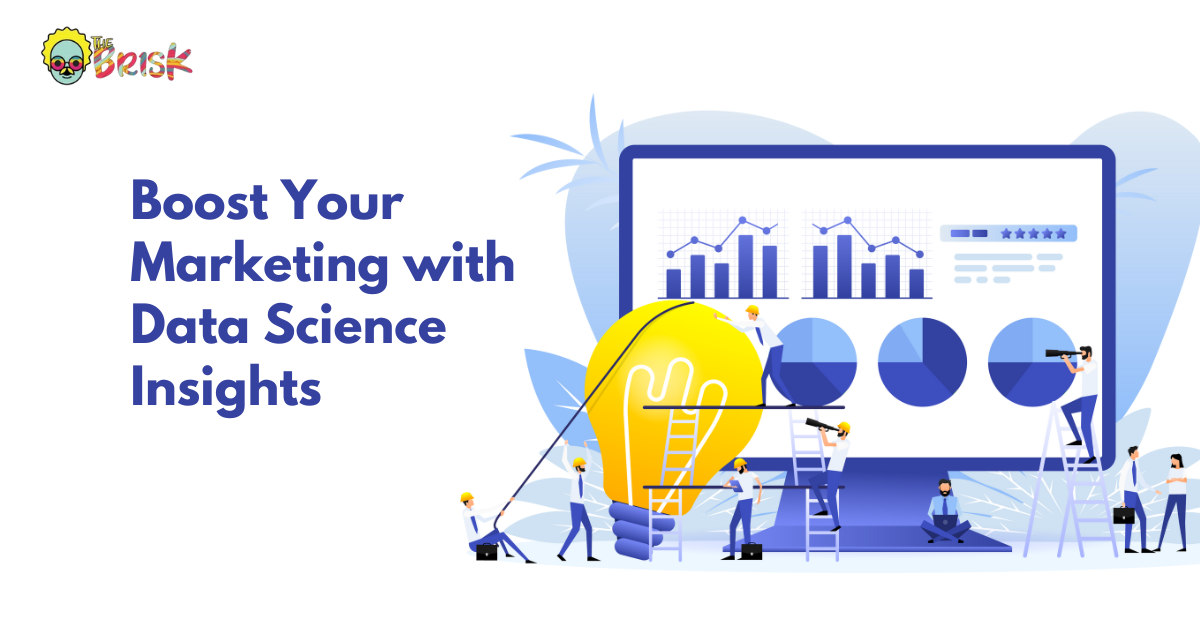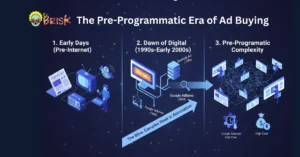Overview
Over the last five years, there has been a gradual shift in the perception of what Artificial Intelligence and Data Science can accomplish to optimize marketing operations for organizations worldwide.
The advent of low-cost analytics solutions based on machine learning approaches is encouraging marketers to generate large datasets and colorful reports.
It’s similar to outsourcing smaller, repetitive jobs via intelligent automation and allowing marketers to make judgments based on machine learning, predefined rules, and algorithms.
In terms of labour, this frees up a large amount of time for decision-making executives to focus on more critical activities that require human input and concentration. The two emphasis areas are strengthening client connections via human interactions and increasing marketing inventiveness.
Data science in marketing can be used for channel optimization, customer segmentation, lead targeting and advanced lead scoring, and real-time interactions, among others, by providing valuable insight into customers’ preferences and behaviours.
What Is Data Science?
Today, data science is an integral component of any company. It is a process for converting company data into assets that assist firms in increasing revenue, lowering expenses, seizing business opportunities, improving customer experience, and more.
Data science is arguably one of the most contentious topics in the industry. Its popularity has grown over time, and organisations have begun to embrace data science tactics to grow their operations and increase customer satisfaction.
The study of massive volumes of data using current technologies and approaches to identify previously unknown patterns, extract useful information, and make business decisions is known as data science.
Pros And Cons Of Data Science
Pros
Advantages For Businesses Include: Data Science assists firms in determining how and when their products sell best, ensuring that things are always supplied to the appropriate location and right time.
The organization makes faster and better judgments to enhance efficiency and earn bigger revenues.
Excluding data science from your marketing approach might be an expensive move in today’s quickly digital environment. Data science advantages will fast outweigh any early recruiting or set-up expenditures.
These advantages include:
- Spend less effort and money on marketing experiments.
- Only target the most valued consumers.
- Increase the lifetime value of a customer
- Learn quickly from client input and forecast which items and services will be popular in the future.
- Improve your digital advertising.
- Cross- and up-selling can help you convert more leads.
Cons
Disadvantages of Data Science:- Everything that has a lot of benefits also has some drawbacks. So, here are some of the downsides of Data Science:
-
Data Security:- Data is the key component that may boost industry efficiency and income by enabling game-changing business decisions.
However, the information or insights generated from the data can be utilized against any company, group of individuals, committee, or other entity.
Extracted information from structured and unstructured data for subsequent use can be exploited against a country’s citizens or a committee.
-
Cost:- The technologies used for data science and analytics can be expensive for a company because some of them are complicated and require training to utilize.
Furthermore, it is difficult to pick the suitable tools for the situation because their selection is reliant on adequate tool expertise as well as accuracy in analyzing data and extracting information.
Impact On Business In The Current Scenario
1. Lowers inefficiencies
Inefficiencies can cost organizations up to 30% of their income. Data scientists monitor a variety of company-wide indicators, such as factory production times, delivery costs, staff productivity, and so on, and identify development opportunities.
It is feasible to reduce overall expenses and increase return on investment by reducing wasted resources. Big data, for example, is anticipated to cut healthcare expenses in the United States by 20%.
2. Forecasts Trends And Consumer Behaviour
Predictive models are extremely useful business tools. Data scientists analyze massive amounts of past data and use it to guide planning processes, allowing organizations to make more informed future decisions.
Data-driven forecasts offer a wide range of practical uses. For example, it is feasible to detect peak consumer shopping periods and alter staff numbers accordingly or to anticipate early buyer tendencies and plan relevant promotional activities.
3. Allows For Competitor Research
Companies cherish data that helps them understand their customers and internal operations, but they also want to acquire a competitive advantage.
Data scientists are in charge of comprehending and extracting insights from competitive data.
Effective competition research assists organizations in making competitive pricing decisions, expanding into new areas, and staying current on changes in customer behaviour.
4. Allows For The Evaluation Of Business Initiatives
Companies may create incremental revenue gains through consistent, long-term testing.
Data scientists are in charge of doing thorough tests to ensure the effectiveness of marketing campaigns, product launches, employee happiness, website optimization, and other initiatives.
One of the most interesting aspects of data science is testing. New, inventive options are pitted against current features, with frequently surprising outcomes.
Furthermore, rather than ‘one-off’ optimization initiatives, organizations like Amazon take an indefinite approach to testing, trialling new improvements, and integrating them as part of a long-term plan.
5. Increases Market Understanding
Data science helps organizations continually restructure their goods and services to meet a moving marketplace by assuring a steady feed of relevant information about customer psychology, behavior, and happiness.
Customers’ data is available from a variety of sources, and extracting information from third-party platforms such as social media, search engines, and purchased datasets presents a unique challenge.
6. Inputs into Hiring Decisions
One of the major issues that organizations encounter when looking for new personnel is the disparity between prospects who appear good on paper and perform well in practice. Data science aims to close this gap by utilizing facts to enhance recruiting methods.
It is feasible to advance towards an optimal ‘company-employee fit’ by integrating and evaluating several data points about applicants.
Conclusion
Data science is an intriguing and rapidly expanding business. Data scientists use a multidisciplinary approach to provide actionable insights and make sound business decisions.
Data science as a subject encompasses a wide range of fields, including computer programming, statistics, business analytics, mathematics, and others. The Brisk, on the other hand, helps you comprehend the notion more thoroughly.
Companies are increasingly developing specific jobs for data scientists since data has various commercial applications. These employees can collect data from throughout an organization and utilize it to guide future choices.




No Comments